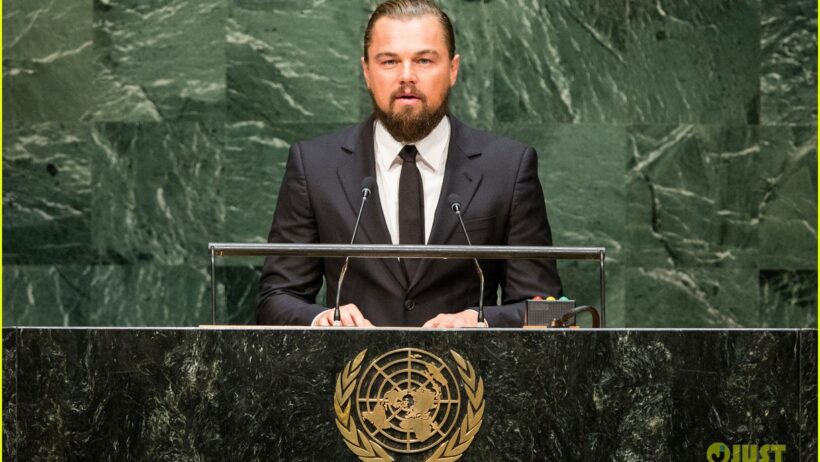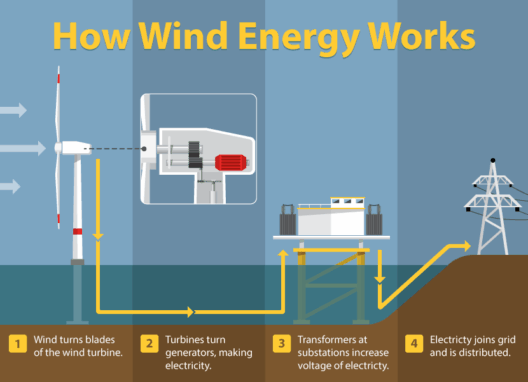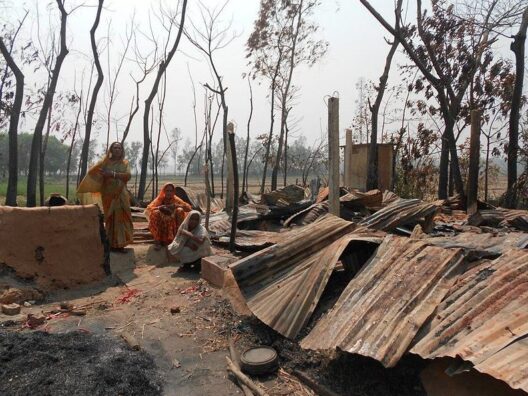Leonardo DiCaprio is not merely an acclaimed actor; he is an ardent environmental advocate whose voice resonates far beyond the silver screen. His address at the United Nations Climate Summit in September 2014 was a watershed moment in the ongoing dialogue about climate change. But what led DiCaprio to take such a prominent stance on this global crisis? Several factors intertwine to illuminate his motivations.
One can scarcely talk about DiCaprio’s environmental advocacy without delving into his formative years. Growing up in Los Angeles, he was surrounded by the glaring effects of urbanization. The juxtaposition of natural beauty and manmade destruction profoundly impacted him. This environment, often marred by pollution and ecological neglect, sparked a curiosity about the fragility of nature. He learned early on that the Earth, our only home, is susceptible to the reckless indulgences of humanity. This awareness became a cornerstone of his activism, guiding him towards a path of environmentalism.
As DiCaprio matured, his proclivity for environmentalism deepened. He founded the Leonardo DiCaprio Foundation in 1998, which has since funded myriad projects geared toward ocean conservation, wildlife preservation, and renewable energy sources. His philanthropic ventures exemplify a commitment to sustainability that goes beyond mere rhetoric. Instead, they showcase a tangible desire to catalyze change. This foundation is emblematic of his underlying ethos: that the preservation of our planet is not just a noble pursuit but a moral imperative.
Despite his impressive credentials, DiCaprio’s emergence as a climate crusader isn’t solely due to personal experiences; it is also a reflection of broader societal shifts towards environmental awareness. The early 21st century has been marked by an increasinugly evident climate crisis. The world has experienced unprecedented weather phenomena, from devastating hurricanes to debilitating droughts. With the scientific community unequivocally warning that time is running out, public consciousness regarding climate change began to burgeon. DiCaprio, occupying a platform that reached millions, found it imperative to harness his influence for the greater good.
His speech at the Climate Summit was not merely a moment of altruism; it was a clarion call to action. DiCaprio’s eloquence and passion captivated audiences both in the grand hall of the UN and around the globe. He emphasized that “climate change is real,” a statement more poignant when underscored by scientific consensus. The gravitas of his arguments was bolstered by harrowing statistics and poignant anecdotes. By articulating the existential threats posed by climate change, DiCaprio urged the world to reconsider its trajectory. He painted a dystopian future, where the consequences of inaction are catastrophic. This vivid narrative talent was crucial in engendering a sense of urgency among global leaders and citizens alike.
A key characteristic of DiCaprio’s advocacy is his ability to create intrigue around the science of climate change. He possesses a knack for translating complex scientific phenomena into accessible language, ensuring that his message resonates with people from all walks of life. By juxtaposing alarming forecasts with hopeful solutions, he instills a sense of agency among his listeners, proving that change is within reach if individuals collectively act.
In addition to his rhetorical prowess, the aesthetics of his presentation cannot be overlooked. DiCaprio effectively harnesses visual storytelling to evoke emotions. During his speech, he showcased images of melting glaciers, barren landscapes, and endangered species, which served as powerful reminders of the natural world that hangs in the balance. The juxtaposition of serene beauty against stark devastation encapsulates the urgency of his message, making abstract issues tangible for his audience. This artistry enhances the narrative and invites empathy; it demands that spectators consider their own lives in the context of climate change.
For many, the appeal of DiCaprio’s activism lies in his authenticity. He embodies a rare combination of celebrity allure and genuine concern for the planet. Through his unwavering commitment, he challenges others in the entertainment industry to leverage their platforms for social change. His authenticity prompts an ongoing discourse about environmental responsibility, encouraging fans and peers alike to explore their own roles in combating climate change. The ripple effect of his influence extends beyond his immediate audience, cultivating a culture of awareness and action.
Moreover, there is an undeniable aesthetic allure surrounding DiCaprio. His charismatic persona and engaging presence draw in even the most skeptical audiences. He is often depicted not just as a star, but as a fellow human being grappling with the same existential concerns that affect everyone. This humanization fosters a sense of unity and shared responsibility. He effectively transforms the abstract notion of climate crisis into a shared human experience, galvanizing diverse communities toward collective action.
In conclusion, Leonardo DiCaprio’s emergence as a climate activist is a multifaceted narrative that encompasses personal conviction, societal shifts, and a mastery of communication. His speech at the Climate Summit served as a pivotal moment, igniting conversations and actions toward environmental stewardship. DiCaprio compels us to confront the stark realities of our time while inspiring hope for a sustainable future. Through his aesthetic appeal and authentic passion, he transforms an urgent call for action into a global movement. As we face unprecedented challenges, his words resonate louder than ever: we indeed only get one planet, and it is our shared duty to protect it.






